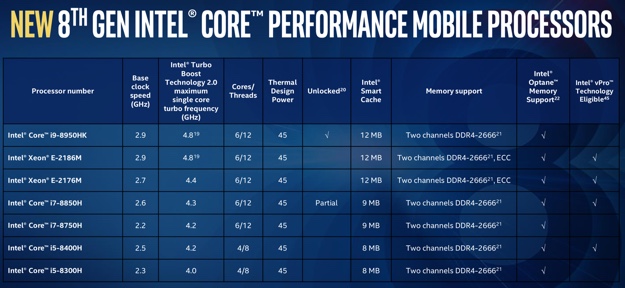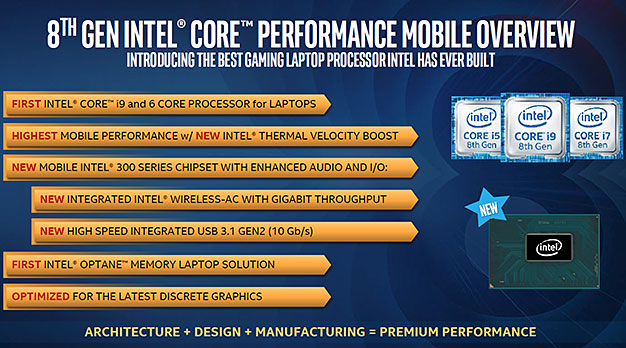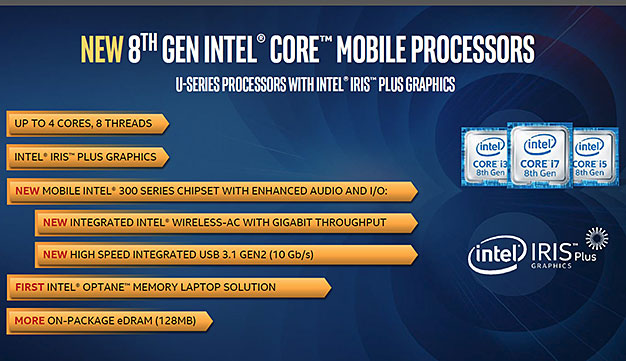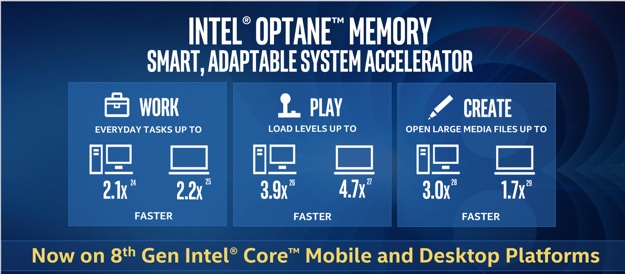Intel Unleashes Salvo Of Coffee Lake 8th Gen Core Laptop And Desktop Chips
However, the new flagship processor is without question the Intel Core i9-8950HK, which is the first Core i9-branded mobile processor. It retains the 6/12 (core/thread) count of the lower-end parts, but features base and turbo clocks of 2.9GHz and 4.8GHz respectively.
As expected, the chip comes unlocked (since it caters to gaming enthusiasts) and bumps the amount of Smart Cache to 12MB. We got an early look at these processors (along with the also-listed Xeon E-2186M and Xeon E-2176M) previously back in mid-January when the specs first leaked.Intel has also rolled out new Coffee Lake-U processors, for thin and light ultrabooks, which have a TDP of 28 watts. The entry-level part is the Core i3-8109U, which has a base clock of 3GHz, and a max single-core turbo boost of 3.6GHz. You're only going to find two physical cores (four threads with HyperThreading) and 4MB of Smart Cache with this budget entry.
At the top of the totem pole, however, is the Core i7-8559U, which features base/turbo boost frequencies of 2.7GHz and 4.5GHz respectively along with four physical cores (eight threads) and 8MB of Smart Cache while maintaining the same 28W TDP.
The U-Series processors also include integrated Iris Plus graphics with 128MB of on-package eDRAM, which should help improve overall graphics performance significantly.
On the desktop side of things, there are a slew of new Low Power Core i3, Core i5, and Core i7 parts with a TDP of 35 watts and lower clock speeds than their non “T” derivative counterparts. All of the aforementioned processors support Intel's Optane memory solutions. Intel says that laptop systems configured with an HDD and 32GB Optane memory module can increase everyday productivity tasks by up to 2.2X, load game levels up to 4.7X faster, and open large media files 1.7X faster than the same system equipped with just a HDD.
Complimenting Intel's new processors are new 300 Series chipsets, the B360, Q370, H310 and H370. The various versions support up to 24 lanes of PCIe 3.0 connectivity, Intel RST and Optane for storage, as well as various densities of USB 3.1 port configurations and additional high speed I/O lane configurations. For a closer look at Intel's new chipset -- specifically the H370 in a desktop configuration -- check out our coverage here of a new motherboard offering from Gigabyte.








